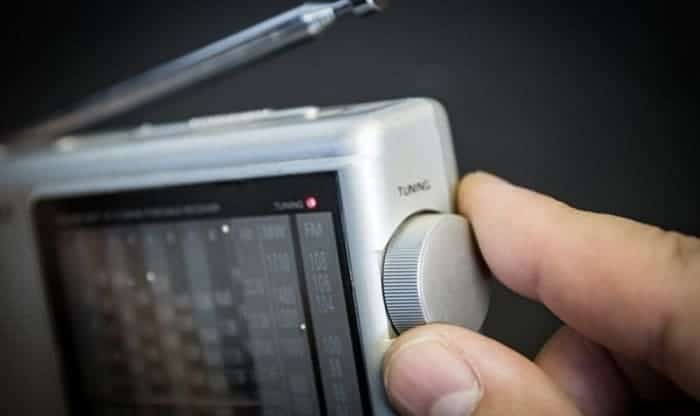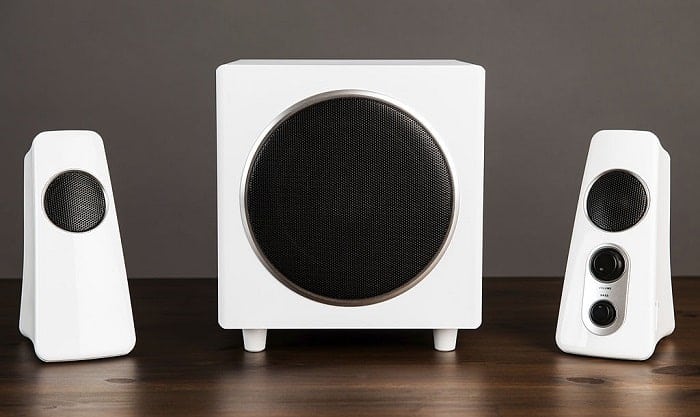Did you know that it is possible to prevent radio interference in speakers?
Yes, you read that right! There are ways to stop your computer speakers from picking up unwanted signals in the air. Thus, you do not have to worry about interruptions while listening to your speakers anymore.
All you have to do is read and follow along with our guide on how to stop radio interference from PC speakers.
Stopping computer speakers picking up radio interference is actually much easier than it sounds. Continue reading to learn all the steps through the sections below.
Table of Contents
How to Stop Radio Interference on PC Speakers
There are a few troubleshooting methods that you can try:
- Minimize interference-causing parts
- Switch electrical sockets
- Shorten long cables
- Install EMI ferrite beads
- Check for proper grounding
- Upgrade or shield the wirings
- Check the internal audio signals
You can find the details of each method below. Read until the end and say goodbye to the annoying buzzing, faint noises, and fade-outs from your PC speakers forever!
7 Simple Methods to Prevent Radio Interference in PC Speakers
Minimize interference-causing parts
This method is exactly as it sounds: remove as many interference-causing parts as possible from your system. To do this, start by identifying all of the components that are connected to your setup.
Unplug the unused speakers, adapters, input devices, and printers—essentially anything that has a current. They can be the reason why your PC speakers are picking up noises elsewhere.
As you disconnect, use the process of elimination to find the culprit component to your radio interference. Then, blacklist it so you will never encounter interruptions while listening to your speakers again.
Switch electrical sockets
Sometimes, the culprit to radio interference is not the computer or speaker itself but the wiring behind an electric socket or outlet. So, it is a good idea to move and reconnect your computer as well as speakers with a different socket or outlet.
Shorten long cables
Cables and wires may be the reason why your PC speakers are picking up unwanted noises. To address this, you must carefully bundle up any excess lengths with cable ties.
Make sure that there are no spare bits of wires or cables left. Just remember, the shorter they are, the better. This reduces the radio signal level on the wiring and the antenna effect on your PC speakers.
In addition to shortening long cables, you can route them away from power cords to eliminate faint noises, white noises, and fade-outs in the speakers.
Install EMI ferrite beads
Install EMI ferrite beads onto your wires and cables. These sometimes also go by the names: ferrite blocks, ferrite chokes, or ferrite clamps.
They can serve as a “choke point” that stops radio interference. You can use these beads for multiple electronics, such as laptops, televisions, gaming systems, and most importantly, speakers.
When purchasing a ferrite bead, select the size based on the thickness of your wire or cable.
- 3mm beads are ideal for thin cords, such as headphones and headsets
- 5mm beads are ideal for slightly thicker cords, like those for network and USB
- 7mm beads are ideal for even thicker electronic or PC cords
- 9mm beads are ideal for extra thick cables and power cords
- 13mm beads are the largest, ideal for high voltage and 12-gauge cords
Depending on your PC speakers, ferrite beads from 3mm to 9mm may be appropriate. Even better if you can get a pack of multi-sized beads to directly test your speakers’ excess lengths.
Rather than a ferrite core, which is installed internally and concealed within the wiring, get a ferrite bead with a clip to close or hinge. You can quickly get these ferrite beads online or offline. Plenty of local stores, as well as online retailers and e-commerce sites, offer them for a fairly low price.
If you are unsure where to look, check out these options with directed links: Jabinco 20-Pack Snap-On Ferrite Core Bead, Topnisus Clip-On Ferrite Core Ring Bead, and iSKUKA Ferrite Beads Clip-On.
Ideally, the bead should be approximately 2 inches from the device. However, the best way to install it is to test it at different positions along the wire. If you notice that the buzzing or unwanted noises are less at a point, place it there.
Once you have determined where to place it, clamp it close on the wire/cable and press the sides together. You should be able to hear a “click” indicating that the bead is fixed in place. To check if the setup is secured, try pulling gently on both sides. Make sure that the bead will not come loose or fall off.
You can loop the wires a couple of times or add a space filler if you think the beads cannot hold onto the wire/cable well. Possible space filler options are toothpicks or plastic paper clips.
Check for proper grounding
The better the grounding, the better the suppression of radio waves, which, in turn, means less interference in your PC speakers. Check the connection to any electrical outlets. They should be properly and firmly grounded.
Upgrade or shield the wirings
Most modern, quality PC speakers have shielded wires. However, if you have an old model system, it is likely that the lack of shielding in the wire contributes to annoying radio interference.
If that is the case, you can upgrade your system to new sets featuring premium shielded wires. Or, you can shield it yourself with additional accessories.
You can use a flexible shielded conduit or wrap magnetic shielding foil around the speakers’ wires. The latter is generally less expensive.
Nevertheless, both options are affordable solutions. Plus, they are not difficult to find. Most electronics stores, both online and offline, will offer these.
While you are at it, thoroughly check the connections of your speakers. Over time, the wires’ ends can fray and, as a result, cause interference. If this is the problem, you must replace the wires with new ones.
Check the internal audio signals
Another potential culprit is the audio signal on your computer. It may be mimicking the unwanted noises of radio interference.
You can check by going into the Windows volume mixer on your computer’s desktop and activating “Search.” Then, enter “adjust system volume” to get a pop-up of a few volume sliders.
Then, take your time muting each slider and use trial and error to pinpoint the guilty slider. Once the radio interference noises stop, leave the slider muted to ensure it will not emit any more irritable sounds shadowing the PC speakers.
Conclusion
With that, you have reached the closing remarks of this article. Now, you should know how to stop radio interference from PC speakers. It is not too tricky, right?
Which of the above worked for you? Let us know in the comments. Or, if you know any other ways to stop interference on speakers, share them with us.
Please also leave a comment in case you have any follow-up questions or thoughts on this topic. We are always super delighted to hear from our readers. So, do not hesitate! You are welcome to pass this article on to your family, friends, or anyone you think will appreciate the content.

After four years working as a radio mechanic, I know that everything about radio communication is not breezy, even though it greatly benefits us. That is why I set up a website sharing my skills and guides to help non-professional users use their radio headsets, set up their antennas or choose the right products, etc.




